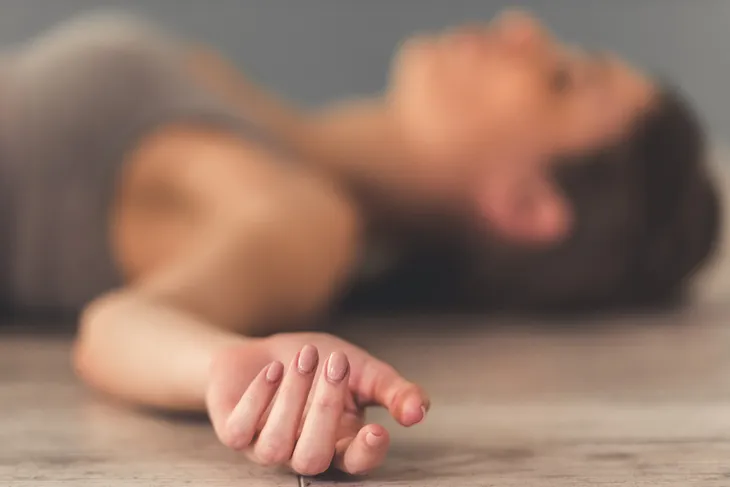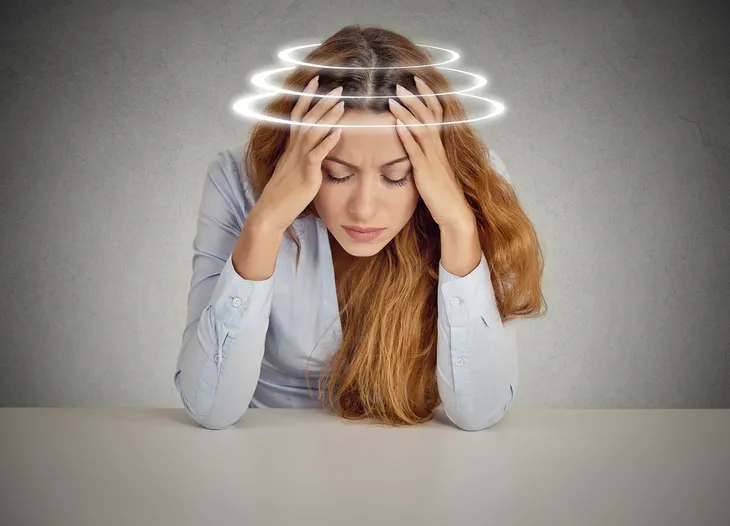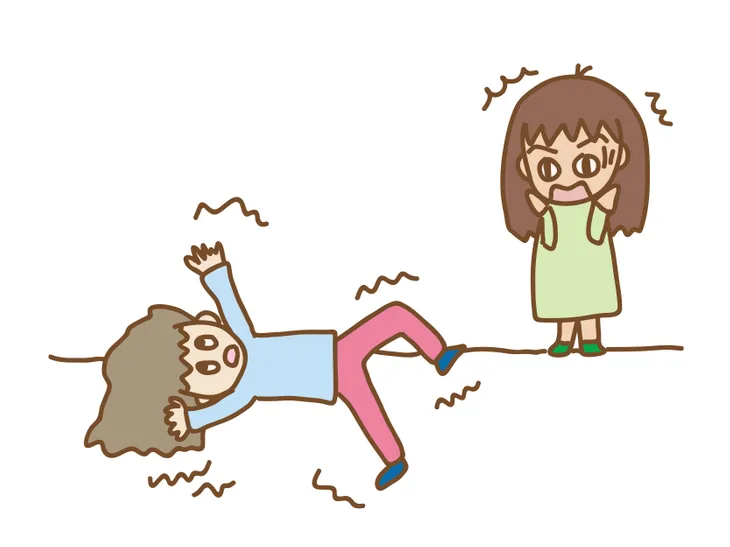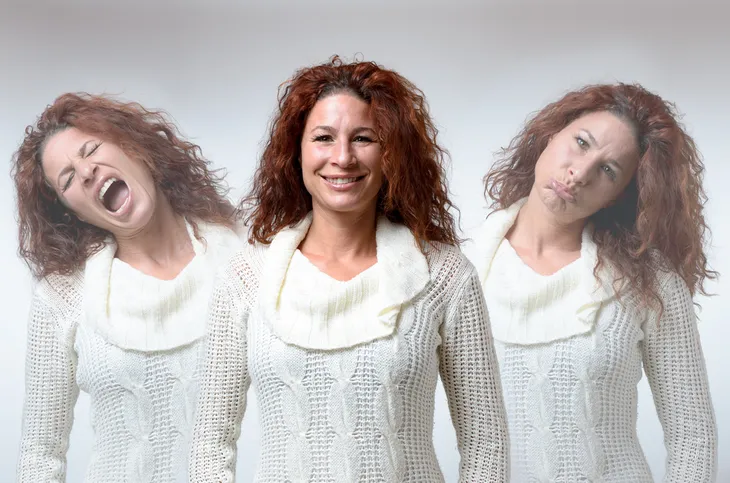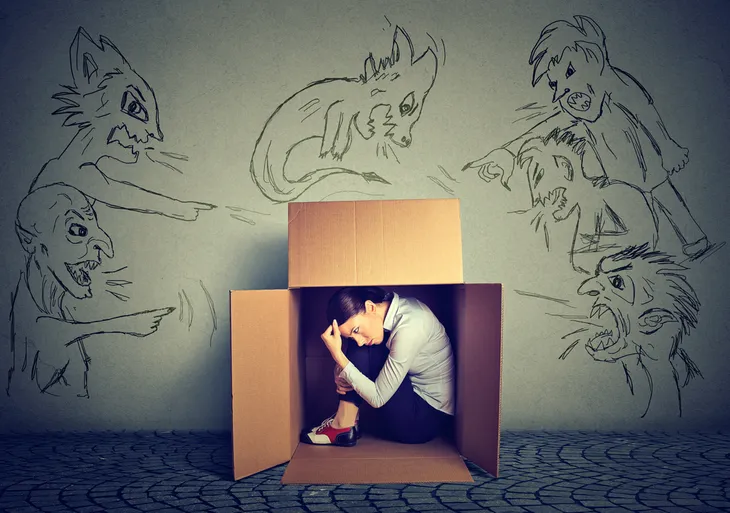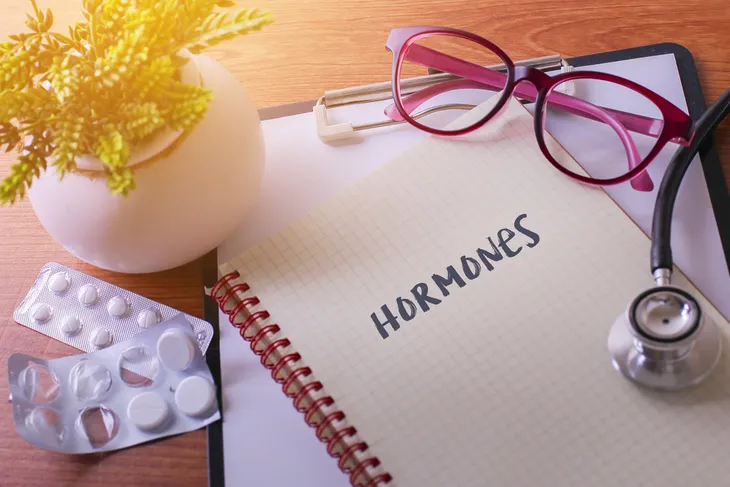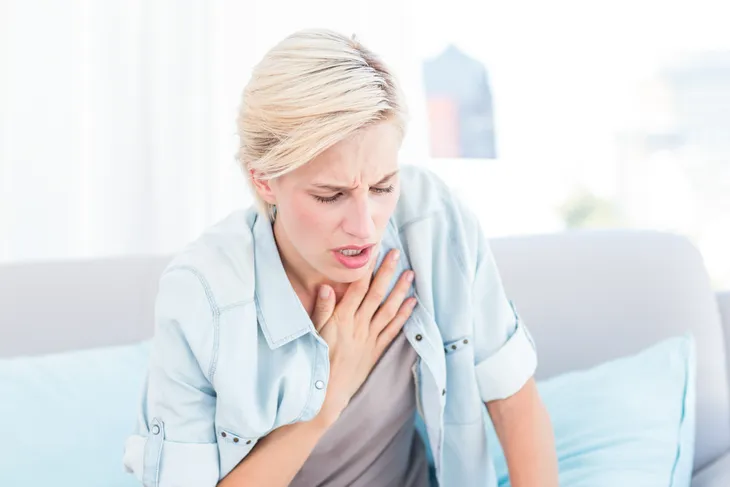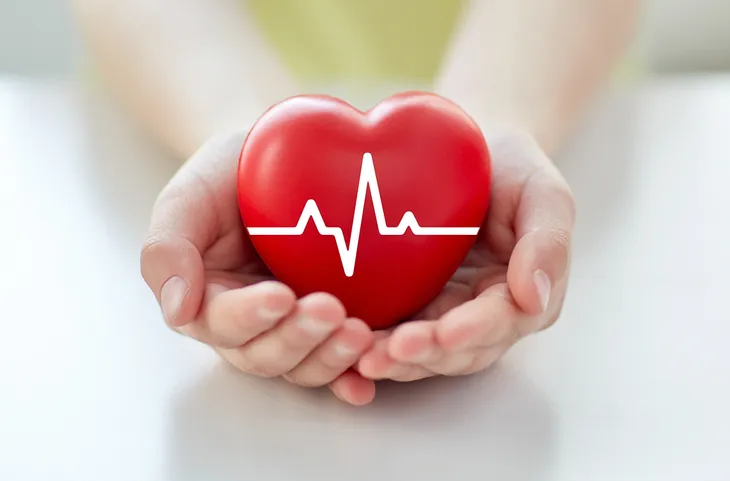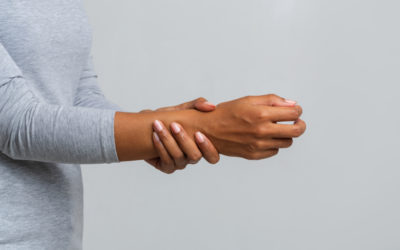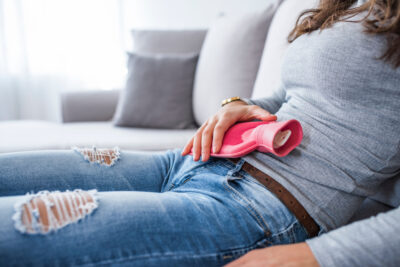Strokes can be life threatening (and are usually at least life changing), and they strike both men and women. Although according to Harvard Medical School, they affect women a bit more often than their male counterparts. The source says every year, 425,000-women suffer a stroke, which is 55,000 more per year than men.
However, there are some unique ways women are affected, and their risk factors for stroke may be a bit different as well. Let’s take a closer look at 12 stroke symptoms that typically only women will experience during (or after) a stroke…
Fainting
Reader’s Digest says fainting is a symptom that a woman having a stroke may have, although it may just be written off as something else less serious. However, the source explains women “tend to suffer strokes to the back of the brain more often than men,” which cuts off blood flow to key areas such as the brainstem.
The source continues by explaining the top of the brainstem is where the “consciousness center lies,” and starving it of blood can lead to fainting. The loss of consciousness may also be a fear response to having a stroke (from hyperventilation), it adds.
Sudden Confusion
If you suddenly “experience sudden, drastic, unexplained changes in your personality or mental state,” and it’s not tied to alcohol or drug use, then it could be a sign of stroke in women, explains Women’s Health.
Furthermore, if you are drinking or using drugs, it can raise the risk factor of having a stroke, adds the source. It may not be as easy to assess your own health if you’re intoxicated, but if you’re experiencing unusual symptoms, it’s best to get checked out, adds the source.
Severe Headaches
GoRedForWomen.com explains the case of a woman who awoke days after giving birth with an “excruciating headache,” which prompted her to seek help at an urgent care clinic. Although she was given painkillers and blood pressure medications, the pain got worse, landing her in an emergency room (ER).
Turns out the woman suffered a hemorrhagic stroke, and she had a second stroke just 3 days later. It was an uphill battle for her to regain speech and mobility, it adds. “The strokes were a wake-up call to take her health more seriously. She took her medication as prescribed and lost weight,” it notes. If you’re suffering a sudden severe headache with no obvious cause, call 911 within 5-minutes, it says.
Dizziness
Perhaps you don’t faint from a stroke, but you may still feel like you’re on a rollercoaster from dizziness, explains Women’s Health. Vertigo, which is marked by dizziness and nausea, is a “lesser known symptom of a stroke but one that is more common in women,” it adds.
The source notes that dizziness is often written off as the flu or another health matter, so medical attention is postponed. “While it may not be a stroke, it’s worth calling your doctor,” it adds.
Hiccups
These are strange spasms that can seemingly come out of nowhere or after you’re eaten some spicy food (i.e., due to the capsaicin in chili peppers). However, while hiccups can be annoying, they’re generally harmless – unless of course they are a sign of a stroke.
Reader’s Digest explains that hiccups are connected to “posterior circulation problems from the brainstem.” It also says hiccups combined with “atypical chest pain” are early markers for a stroke. However, a survey from the Ohio State University Wexner Medical Center found that only 10-percent of women asked knew about these particular stroke symptoms.
Seizures
Seizures can have many triggers, such as epilepsy. However, if you’re not accustomed to experiencing seizures and have no known medical condition, then your seizure may be the result of a stroke, explains Women’s Health.
“Strokes are so deadly because they can quickly cause brain damage, and seizures are one sign of potential brain damage,” it explains. Whatever the cause, if you have a sudden-onset seizure, get to an ER immediately.
Behavioral Changes
You may not be the one that determines this symptom, but others around you might. If you suddenly have a change in your mental status or behavior without an obvious trigger, then it could be a sign of stroke in women, says Reader’s Digest.
A shift in mental status can be consistent with a posterior circulation stroke, “which could target areas responsible for memory and personality,” it explains. It may also be a stroke in the frontal lobe, which is tied to personality, adds the source.
Hallucinations
Hallucinations are when you see objects that just aren’t there, kind of like being in a lucid dream. However, while having hallucinations can actually be quite terrifying, they can also be tied to stroke, according to Reader’s Digest.
It says that vision changes are relatively common with strokes in general. But women may also suffer hallucinations because the occipital lobes that interpret visual data can be damaged by posterior circulation troubles. Other sources note women may experience auditory hallucinations, which is hearing noises that aren’t there.
Early Menopause
This is actually more of a risk factor unique to females than a symptom of a stroke, but should definitely be kept in mind. WebMD explains that early menopause in women may double their risk for stroke, at least according to a study.
The research out of the University of Michigan in Ann Arbor shows women who “permanently stop menstruating” before 42 years of age are twice as likely to suffer a stroke than other women, it says. “The findings raise the hypothesis that decreasing estrogen levels after menopause may raise the risk of stroke,” notes the researchers. But remember, this finding was nearly a decade ago. Other research shows hormone therapy (and taking birth control pills) may also increase the risk for stroke.
Low Levels of a Key Hormone
Speaking of hormones, Reader’s Digest also points out that research has identified another risk factor for stroke that is unique to women – low levels of dehydroepiandrosterone (DHEA).
This hormone is made by the adrenal glands and is responsible for producing other hormones such as estrogen, adds the source. “It is not entirely clear whether low DHEA levels reflect some other underlying problem, or whether the effect on risk of stroke is through their influence on other hormone levels,” it adds.
Shortness of Breath
Strokes can literally take your breath away, according to Reader’s Digest. “Although women would think chest pain and shortness of breath are signs of a heart attack, it could be a stroke,” it notes.
Shortness of breath is consistent with circulation problems at the bottom of the brainstem “where the respiratory drive center lies,” it adds. No matter what the reason for shortness of breath (not the temporary kind caused by intense exercise), you’ll want to see a doctor – ASAP.
Irregular Heartbeat
Cleveland Clinic says that atrial fibrillation – “one of the most common irregular heart rhythms” – can indicate a higher risk for stroke in women. This heart condition is categorized by “a rapid irregular heart rhythm originating in the atria,” it adds.
While men have atrial fibrillation more often than women, women are more likely to have this condition associated with heart valve disease. The Copenhagen Heart Study found that women with this heart condition are more likely to die from strokes and cardiovascular problems than men, especially women with the condition that are older than 75.

